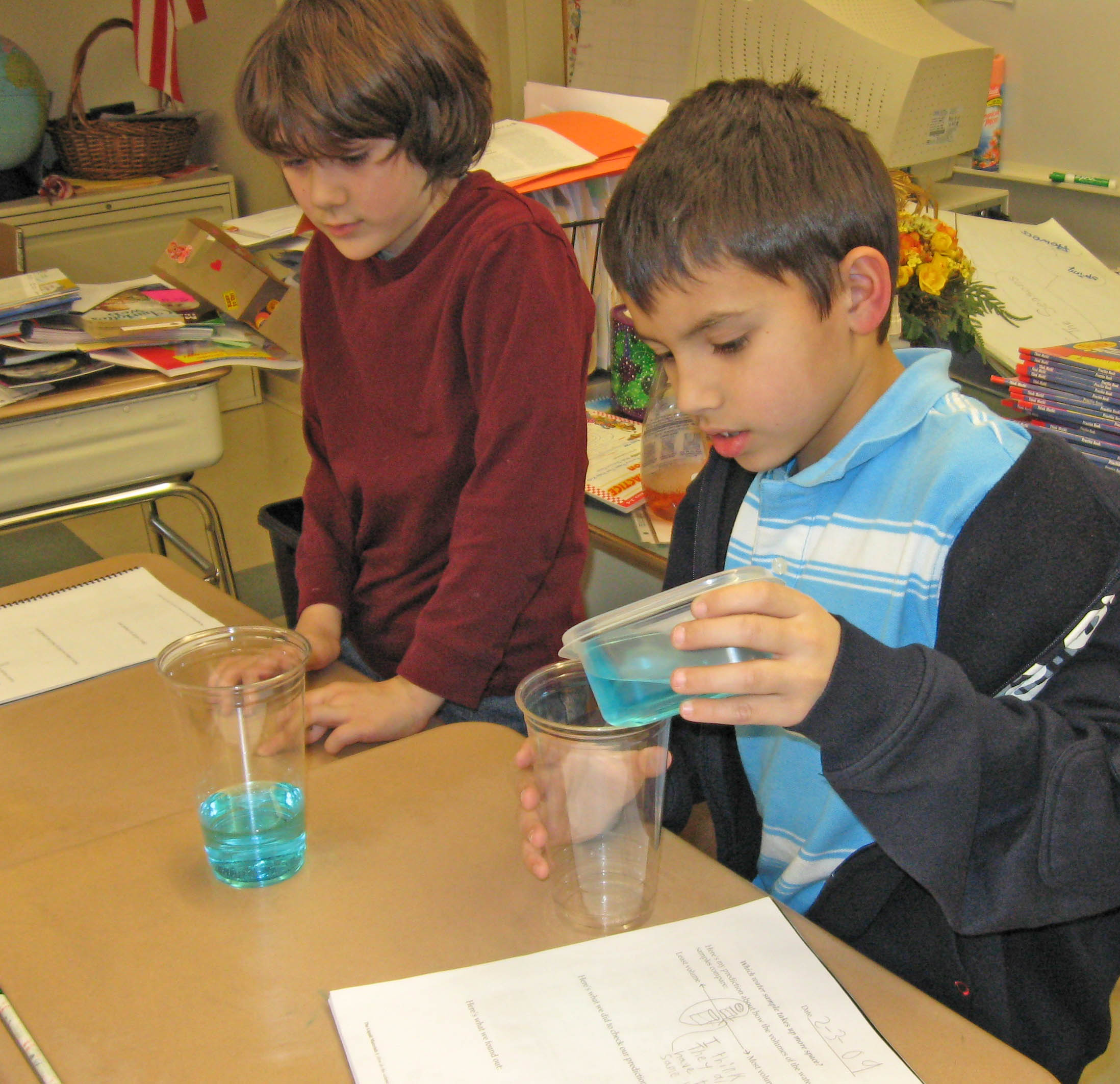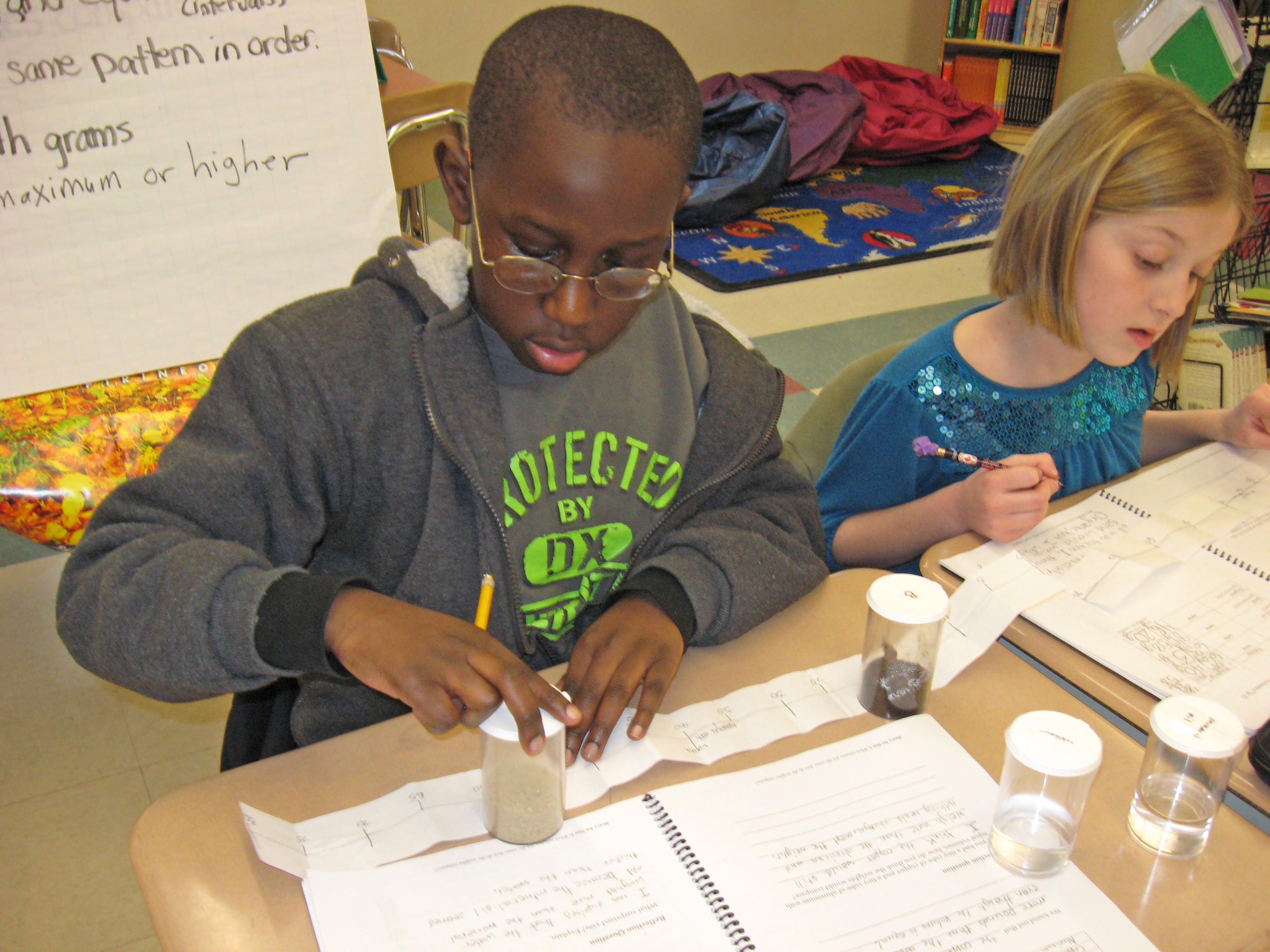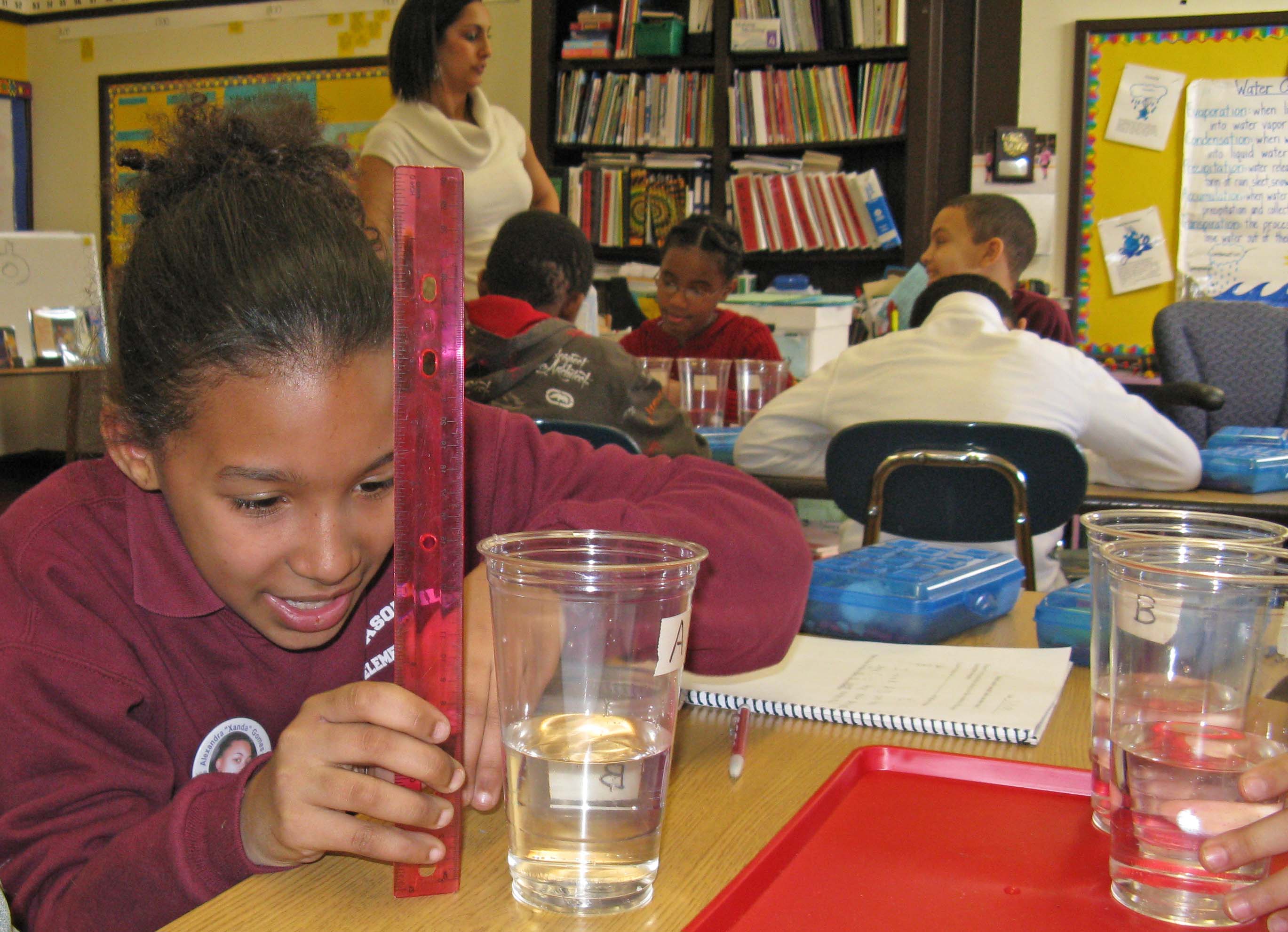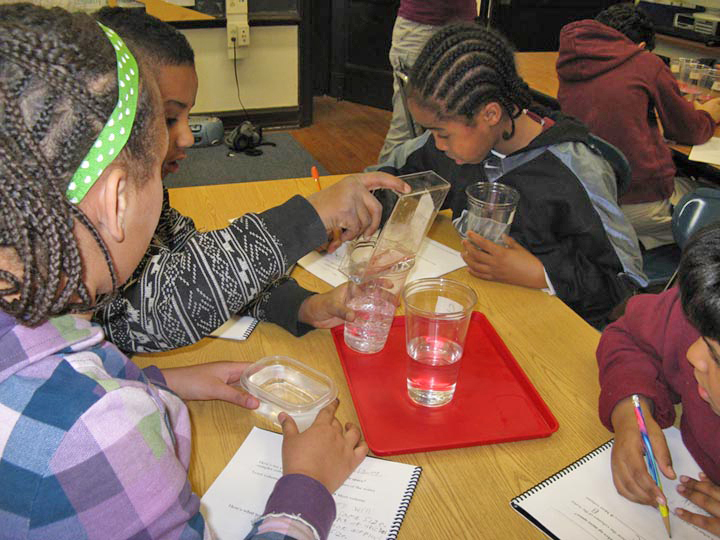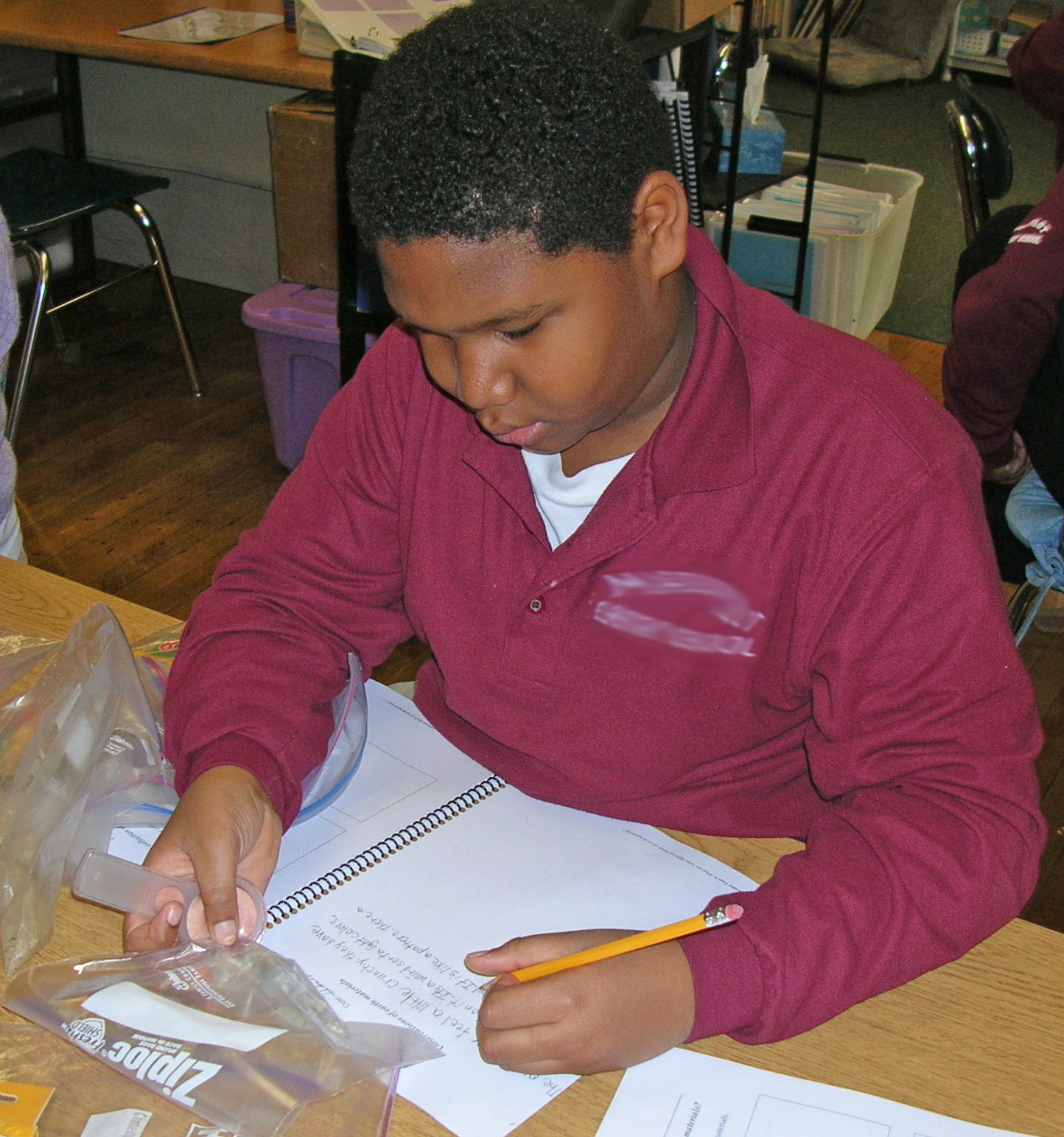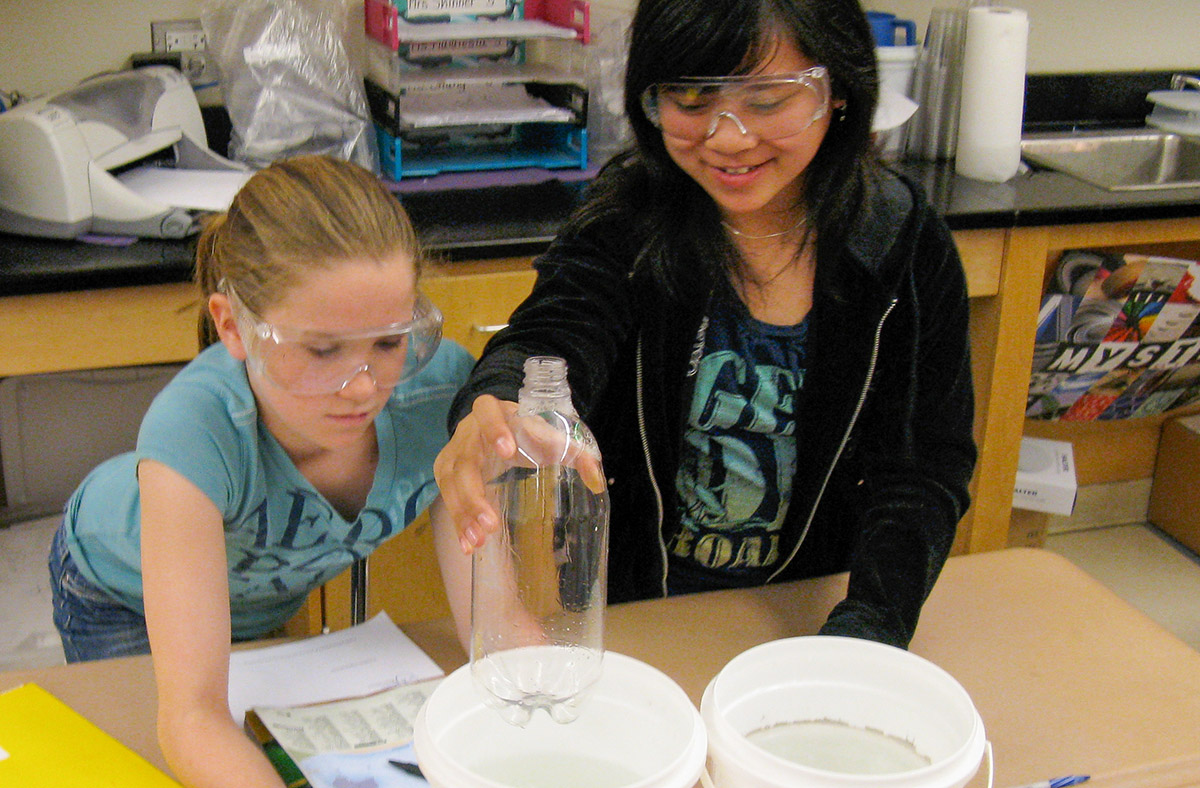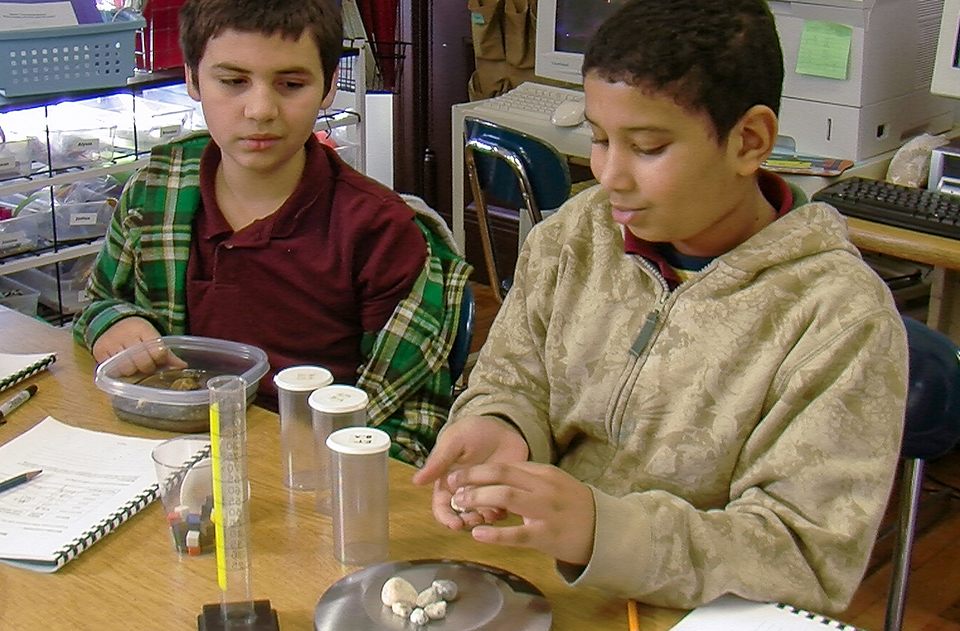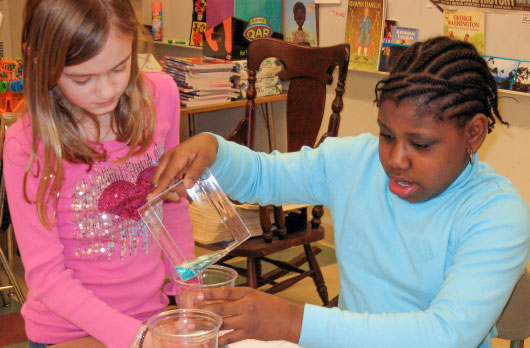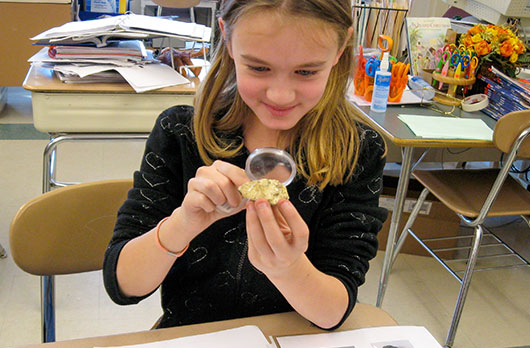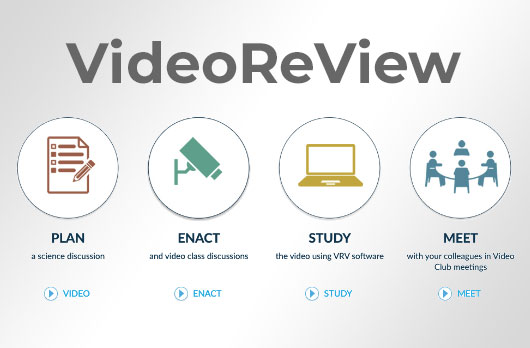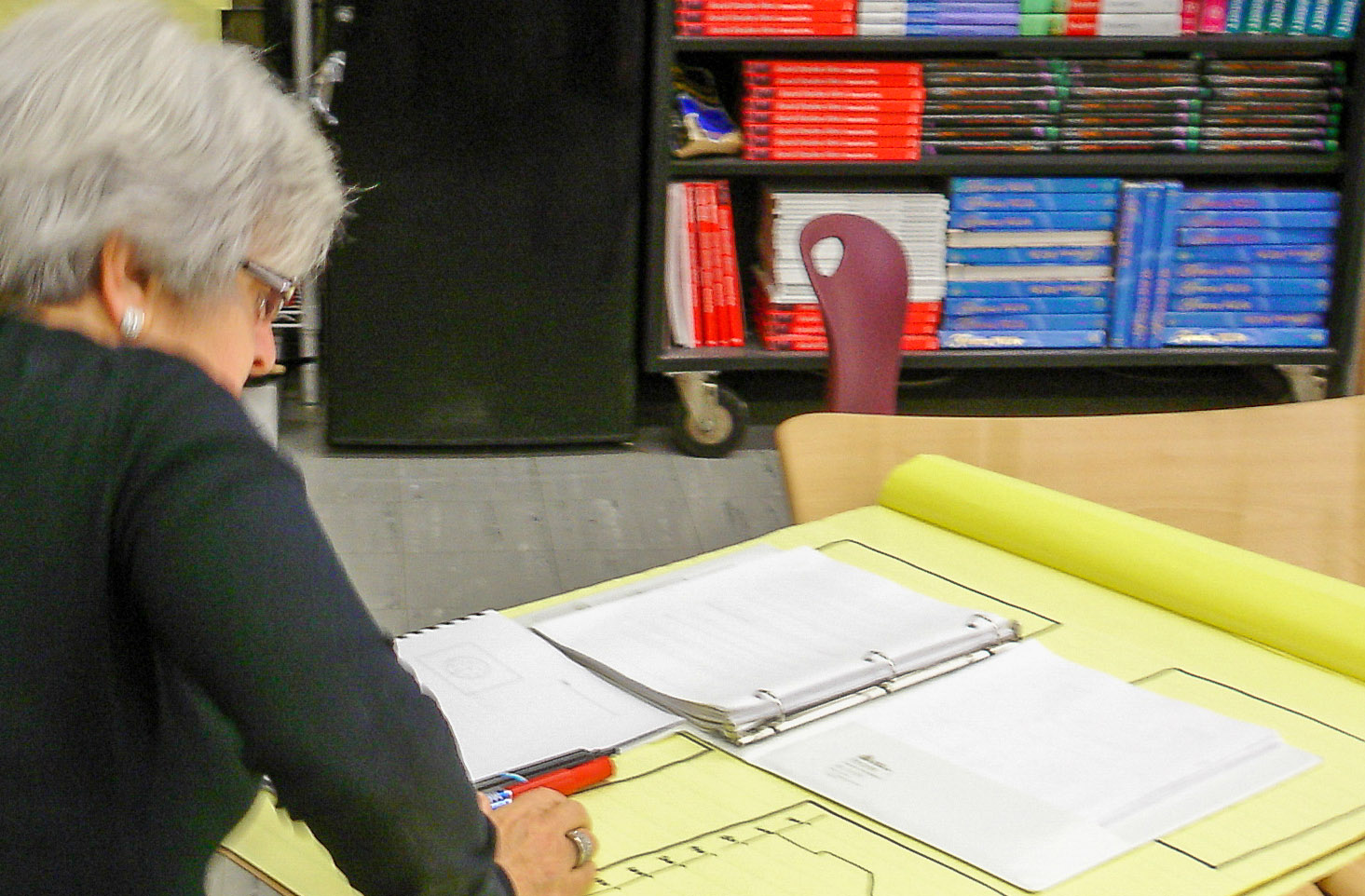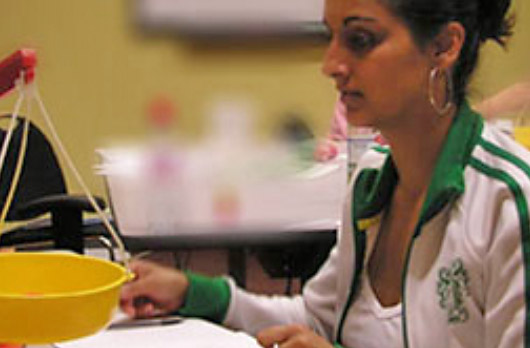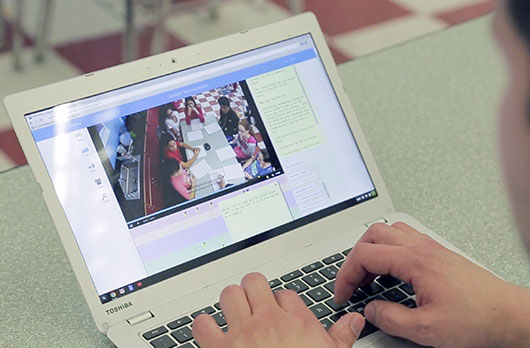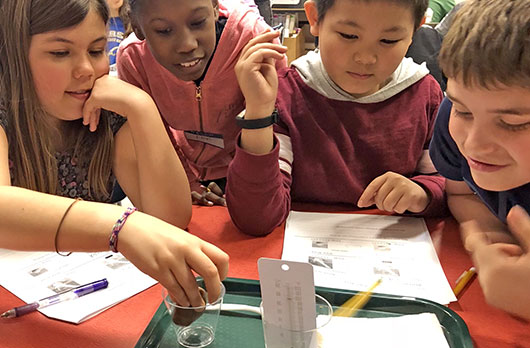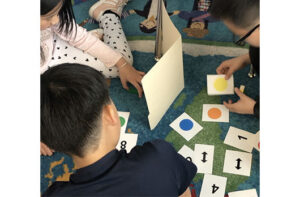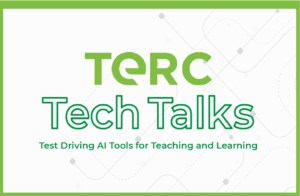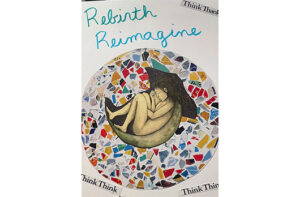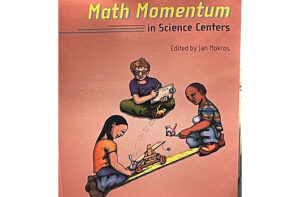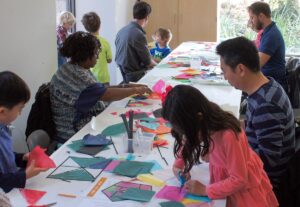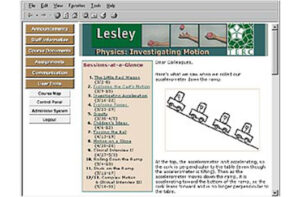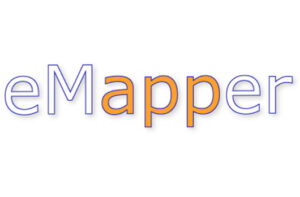The Inquiry Project
Science curricula for grades 3-5 and professional development aligned with the NRC Science Framework.
Project Staff:
Sally CrissmanSara Lacy
Anushree Bopardikar
Retired TERC Lead StaffSummaryThe Inquiry Project establishes a firm foundation for developing students’ ideas about matter, a key idea in science. The project is founded on a learning progression for matter and material and brings together research about children’s science ideas, curriculum, assessment, and professional development. Unique characteristics of the work are its integration of mathematics and science, and its focus on evidence-based reasoning through investigation and discussion.
CurriculumThe Inquiry Curriculum helps Grades 3-5 students to build a sound understanding of matter and material in which the physical quantities of weight, volume, and density are inter-related and for which students recognize solids, liquids, and gases as distinct forms of matter. All learning experiences are guided by the view that students understanding of the atomic molecular theory must rest on foundations built during the early school years. Research suggests that these understandings are achieved through deep and broad reconceptualization of childrenʼs physical, mathematical, epistemological, and symbolic knowledge (Smith et al., op. cit.; Wiser & Smith, 2008). This stance is consistent with the NRC K-12 Science Framework that calls for systematically coordinating the development of core ideas, practices, and crosscutting concepts (National Research Council 2011.)

Professional DevelopmentProfessional development is comprised of Implementation Workshops that introduce teachers to the curriculum and embedded assessment opportunities, and Talk Science, professional development designed to help teachers lead productive science discussions.
ResearchA longitudinal study was conducted to compare the learning of Grade 3-5 children who used the Inquiry Curriculum with those who did not. This informed further refinement of the curriculum and learning progression and showed that children who had the Inquiry Curriculum made more progress in moving from perception-based to model-mediated understandings of materials and matter (Doubler, et al. 2011; Smith, Wiser, & Carraher 2010; Smith, Wiser & Doubler 2011.)
ImpactThe Inquiry Project data so far provide compelling evidence that:
- Children in our sample start with macroscopic concepts of weight, size, material and matter at odds with scientists’ conceptions; this supports our assumption that new curricula may be needed to target these conceptual difficulties that are typically overlooked as important in traditional science curricula;
- Children receiving the Inquiry Project curriculum made clear progress in both grade 3 and grade 4 on multiple aspects of conceptual understanding of matter, weight, volume, and density; these changes provide evidence that they are engaged in a productive, but long-drawn process of reconceptualizing their matter network;
- Control students (receiving the standard science curriculum used in their school) made very little progress on items calling for major reconceptualization (as opposed to elaboration). This is further evidence that instructional support is needed in developing these ideas; these ideas do not simply come “for free” with development, as some have assumed, nor are they well developed with standard math and science curriculum.
Show More
Show Less
Wiser, M., Smith, C., Asbell-Clarke, J. & Doubler, S. (2009) Developing and refining a learning progression for matter: The Inquiry Project grades 3-5. Paper presented at a symposium for a Learning Progression for Matter, American Educational Research Association meeting, April 14, 2009, San Diego, CA.
Wiser, M., Smith, C.L., Doubler, S. & J. Asbell-Clarke. Learning Progressions as tool for curriculum development: Lessons from the Inquiry Project. (2009) Paper presented at the “Learning Progressions in Science” Conference, Iowa City, IA, June 24-26, 2009, 26pp.
Smith, C.L. & Brown, N.J.S. (2014) The affordances and challenges of using comparative longitudinal designs in matter LP research: Lessons from the Inquiry Project. Paper presented at NARST Symposium: Methodological Trade-offs in LP Work, April 2, 2014.
Connected WorkCarraher, D.W., Smith, C.L., Wiser, M., Schliemann, A.D. & Cayton-Hodges, G. (2009) Assessing students’ evolving understanding about matter. Paper presented at the “Learning Progressions in Science” Conference, Iowa City, IA, June 24-26, 29pp. PowerPoint Presentation Doubler, S., Carraher, D.W., Asbell-Clarke, J., Tobin, R. (2011). The Inquiry Project (#0628245): Final Report written for the National Science Foundation, Sept. 8, 2011, 84 pp. Smith, C., Wiser, M., & Carraher, D. (2010) Using a comparative longitudinal study to test some assumptions about a learning progression for matter. Paper presented at NARST (National Association for Research in Science Teaching), March 24, 2010, Philadelphia, PA.
Show More
Show Less
Wiser, M., Smith, C., Asbell-Clarke, J. & Doubler, S. (2009) Developing and refining a learning progression for matter: The Inquiry Project grades 3-5. Paper presented at a symposium for a Learning Progression for Matter, American Educational Research Association meeting, April 14, 2009, San Diego, CA. Wiser, M., Smith, C.L., Doubler, S. & J. Asbell-Clarke. Learning Progressions as tool for curriculum development: Lessons from the Inquiry Project. (2009) Paper presented at the “Learning Progressions in Science” Conference, Iowa City, IA, June 24-26, 2009, 26pp. Smith, C.L. & Brown, N.J.S. (2014) The affordances and challenges of using comparative longitudinal designs in matter LP research: Lessons from the Inquiry Project. Paper presented at NARST Symposium: Methodological Trade-offs in LP Work, April 2, 2014.
The Inquiry Project establishes a firm foundation for developing students’ ideas about matter, a key idea in science. The project is founded on a learning progression for matter and material and brings together research about children’s science ideas, curriculum, assessment, and professional development. Unique characteristics of the work are its integration of mathematics and science, and its focus on evidence-based reasoning through investigation and discussion.
CurriculumThe Inquiry Curriculum helps Grades 3-5 students to build a sound understanding of matter and material in which the physical quantities of weight, volume, and density are inter-related and for which students recognize solids, liquids, and gases as distinct forms of matter. All learning experiences are guided by the view that students understanding of the atomic molecular theory must rest on foundations built during the early school years. Research suggests that these understandings are achieved through deep and broad reconceptualization of childrenʼs physical, mathematical, epistemological, and symbolic knowledge (Smith et al., op. cit.; Wiser & Smith, 2008). This stance is consistent with the NRC K-12 Science Framework that calls for systematically coordinating the development of core ideas, practices, and crosscutting concepts (National Research Council 2011.)

Professional DevelopmentProfessional development is comprised of Implementation Workshops that introduce teachers to the curriculum and embedded assessment opportunities, and Talk Science, professional development designed to help teachers lead productive science discussions.
ResearchA longitudinal study was conducted to compare the learning of Grade 3-5 children who used the Inquiry Curriculum with those who did not. This informed further refinement of the curriculum and learning progression and showed that children who had the Inquiry Curriculum made more progress in moving from perception-based to model-mediated understandings of materials and matter (Doubler, et al. 2011; Smith, Wiser, & Carraher 2010; Smith, Wiser & Doubler 2011.)
ImpactThe Inquiry Project data so far provide compelling evidence that:
- Children in our sample start with macroscopic concepts of weight, size, material and matter at odds with scientists’ conceptions; this supports our assumption that new curricula may be needed to target these conceptual difficulties that are typically overlooked as important in traditional science curricula;
- Children receiving the Inquiry Project curriculum made clear progress in both grade 3 and grade 4 on multiple aspects of conceptual understanding of matter, weight, volume, and density; these changes provide evidence that they are engaged in a productive, but long-drawn process of reconceptualizing their matter network;
- Control students (receiving the standard science curriculum used in their school) made very little progress on items calling for major reconceptualization (as opposed to elaboration). This is further evidence that instructional support is needed in developing these ideas; these ideas do not simply come “for free” with development, as some have assumed, nor are they well developed with standard math and science curriculum.
Show More
Show Less
Wiser, M., Smith, C., Asbell-Clarke, J. & Doubler, S. (2009) Developing and refining a learning progression for matter: The Inquiry Project grades 3-5. Paper presented at a symposium for a Learning Progression for Matter, American Educational Research Association meeting, April 14, 2009, San Diego, CA.
Wiser, M., Smith, C.L., Doubler, S. & J. Asbell-Clarke. Learning Progressions as tool for curriculum development: Lessons from the Inquiry Project. (2009) Paper presented at the “Learning Progressions in Science” Conference, Iowa City, IA, June 24-26, 2009, 26pp.
Smith, C.L. & Brown, N.J.S. (2014) The affordances and challenges of using comparative longitudinal designs in matter LP research: Lessons from the Inquiry Project. Paper presented at NARST Symposium: Methodological Trade-offs in LP Work, April 2, 2014.
Connected WorkCarraher, D.W., Smith, C.L., Wiser, M., Schliemann, A.D. & Cayton-Hodges, G. (2009) Assessing students’ evolving understanding about matter. Paper presented at the “Learning Progressions in Science” Conference, Iowa City, IA, June 24-26, 29pp. PowerPoint Presentation Doubler, S., Carraher, D.W., Asbell-Clarke, J., Tobin, R. (2011). The Inquiry Project (#0628245): Final Report written for the National Science Foundation, Sept. 8, 2011, 84 pp. Smith, C., Wiser, M., & Carraher, D. (2010) Using a comparative longitudinal study to test some assumptions about a learning progression for matter. Paper presented at NARST (National Association for Research in Science Teaching), March 24, 2010, Philadelphia, PA.
Show More
Show Less
Wiser, M., Smith, C., Asbell-Clarke, J. & Doubler, S. (2009) Developing and refining a learning progression for matter: The Inquiry Project grades 3-5. Paper presented at a symposium for a Learning Progression for Matter, American Educational Research Association meeting, April 14, 2009, San Diego, CA. Wiser, M., Smith, C.L., Doubler, S. & J. Asbell-Clarke. Learning Progressions as tool for curriculum development: Lessons from the Inquiry Project. (2009) Paper presented at the “Learning Progressions in Science” Conference, Iowa City, IA, June 24-26, 2009, 26pp. Smith, C.L. & Brown, N.J.S. (2014) The affordances and challenges of using comparative longitudinal designs in matter LP research: Lessons from the Inquiry Project. Paper presented at NARST Symposium: Methodological Trade-offs in LP Work, April 2, 2014.
The Inquiry Curriculum helps Grades 3-5 students to build a sound understanding of matter and material in which the physical quantities of weight, volume, and density are inter-related and for which students recognize solids, liquids, and gases as distinct forms of matter. All learning experiences are guided by the view that students understanding of the atomic molecular theory must rest on foundations built during the early school years. Research suggests that these understandings are achieved through deep and broad reconceptualization of childrenʼs physical, mathematical, epistemological, and symbolic knowledge (Smith et al., op. cit.; Wiser & Smith, 2008). This stance is consistent with the NRC K-12 Science Framework that calls for systematically coordinating the development of core ideas, practices, and crosscutting concepts (National Research Council 2011.)

Professional DevelopmentProfessional development is comprised of Implementation Workshops that introduce teachers to the curriculum and embedded assessment opportunities, and Talk Science, professional development designed to help teachers lead productive science discussions.
ResearchA longitudinal study was conducted to compare the learning of Grade 3-5 children who used the Inquiry Curriculum with those who did not. This informed further refinement of the curriculum and learning progression and showed that children who had the Inquiry Curriculum made more progress in moving from perception-based to model-mediated understandings of materials and matter (Doubler, et al. 2011; Smith, Wiser, & Carraher 2010; Smith, Wiser & Doubler 2011.)
ImpactThe Inquiry Project data so far provide compelling evidence that:
- Children in our sample start with macroscopic concepts of weight, size, material and matter at odds with scientists’ conceptions; this supports our assumption that new curricula may be needed to target these conceptual difficulties that are typically overlooked as important in traditional science curricula;
- Children receiving the Inquiry Project curriculum made clear progress in both grade 3 and grade 4 on multiple aspects of conceptual understanding of matter, weight, volume, and density; these changes provide evidence that they are engaged in a productive, but long-drawn process of reconceptualizing their matter network;
- Control students (receiving the standard science curriculum used in their school) made very little progress on items calling for major reconceptualization (as opposed to elaboration). This is further evidence that instructional support is needed in developing these ideas; these ideas do not simply come “for free” with development, as some have assumed, nor are they well developed with standard math and science curriculum.
Show More
Show Less
Wiser, M., Smith, C., Asbell-Clarke, J. & Doubler, S. (2009) Developing and refining a learning progression for matter: The Inquiry Project grades 3-5. Paper presented at a symposium for a Learning Progression for Matter, American Educational Research Association meeting, April 14, 2009, San Diego, CA.
Wiser, M., Smith, C.L., Doubler, S. & J. Asbell-Clarke. Learning Progressions as tool for curriculum development: Lessons from the Inquiry Project. (2009) Paper presented at the “Learning Progressions in Science” Conference, Iowa City, IA, June 24-26, 2009, 26pp.
Smith, C.L. & Brown, N.J.S. (2014) The affordances and challenges of using comparative longitudinal designs in matter LP research: Lessons from the Inquiry Project. Paper presented at NARST Symposium: Methodological Trade-offs in LP Work, April 2, 2014.
Connected WorkCarraher, D.W., Smith, C.L., Wiser, M., Schliemann, A.D. & Cayton-Hodges, G. (2009) Assessing students’ evolving understanding about matter. Paper presented at the “Learning Progressions in Science” Conference, Iowa City, IA, June 24-26, 29pp. PowerPoint Presentation Doubler, S., Carraher, D.W., Asbell-Clarke, J., Tobin, R. (2011). The Inquiry Project (#0628245): Final Report written for the National Science Foundation, Sept. 8, 2011, 84 pp. Smith, C., Wiser, M., & Carraher, D. (2010) Using a comparative longitudinal study to test some assumptions about a learning progression for matter. Paper presented at NARST (National Association for Research in Science Teaching), March 24, 2010, Philadelphia, PA.
Show More
Show Less
Wiser, M., Smith, C., Asbell-Clarke, J. & Doubler, S. (2009) Developing and refining a learning progression for matter: The Inquiry Project grades 3-5. Paper presented at a symposium for a Learning Progression for Matter, American Educational Research Association meeting, April 14, 2009, San Diego, CA. Wiser, M., Smith, C.L., Doubler, S. & J. Asbell-Clarke. Learning Progressions as tool for curriculum development: Lessons from the Inquiry Project. (2009) Paper presented at the “Learning Progressions in Science” Conference, Iowa City, IA, June 24-26, 2009, 26pp. Smith, C.L. & Brown, N.J.S. (2014) The affordances and challenges of using comparative longitudinal designs in matter LP research: Lessons from the Inquiry Project. Paper presented at NARST Symposium: Methodological Trade-offs in LP Work, April 2, 2014.
Professional development is comprised of Implementation Workshops that introduce teachers to the curriculum and embedded assessment opportunities, and Talk Science, professional development designed to help teachers lead productive science discussions.
A longitudinal study was conducted to compare the learning of Grade 3-5 children who used the Inquiry Curriculum with those who did not. This informed further refinement of the curriculum and learning progression and showed that children who had the Inquiry Curriculum made more progress in moving from perception-based to model-mediated understandings of materials and matter (Doubler, et al. 2011; Smith, Wiser, & Carraher 2010; Smith, Wiser & Doubler 2011.)
ImpactThe Inquiry Project data so far provide compelling evidence that:
- Children in our sample start with macroscopic concepts of weight, size, material and matter at odds with scientists’ conceptions; this supports our assumption that new curricula may be needed to target these conceptual difficulties that are typically overlooked as important in traditional science curricula;
- Children receiving the Inquiry Project curriculum made clear progress in both grade 3 and grade 4 on multiple aspects of conceptual understanding of matter, weight, volume, and density; these changes provide evidence that they are engaged in a productive, but long-drawn process of reconceptualizing their matter network;
- Control students (receiving the standard science curriculum used in their school) made very little progress on items calling for major reconceptualization (as opposed to elaboration). This is further evidence that instructional support is needed in developing these ideas; these ideas do not simply come “for free” with development, as some have assumed, nor are they well developed with standard math and science curriculum.
Show More
Show Less
Wiser, M., Smith, C., Asbell-Clarke, J. & Doubler, S. (2009) Developing and refining a learning progression for matter: The Inquiry Project grades 3-5. Paper presented at a symposium for a Learning Progression for Matter, American Educational Research Association meeting, April 14, 2009, San Diego, CA.
Wiser, M., Smith, C.L., Doubler, S. & J. Asbell-Clarke. Learning Progressions as tool for curriculum development: Lessons from the Inquiry Project. (2009) Paper presented at the “Learning Progressions in Science” Conference, Iowa City, IA, June 24-26, 2009, 26pp.
Smith, C.L. & Brown, N.J.S. (2014) The affordances and challenges of using comparative longitudinal designs in matter LP research: Lessons from the Inquiry Project. Paper presented at NARST Symposium: Methodological Trade-offs in LP Work, April 2, 2014.
Connected WorkCarraher, D.W., Smith, C.L., Wiser, M., Schliemann, A.D. & Cayton-Hodges, G. (2009) Assessing students’ evolving understanding about matter. Paper presented at the “Learning Progressions in Science” Conference, Iowa City, IA, June 24-26, 29pp. PowerPoint Presentation Doubler, S., Carraher, D.W., Asbell-Clarke, J., Tobin, R. (2011). The Inquiry Project (#0628245): Final Report written for the National Science Foundation, Sept. 8, 2011, 84 pp. Smith, C., Wiser, M., & Carraher, D. (2010) Using a comparative longitudinal study to test some assumptions about a learning progression for matter. Paper presented at NARST (National Association for Research in Science Teaching), March 24, 2010, Philadelphia, PA.
Show More
Show Less
Wiser, M., Smith, C., Asbell-Clarke, J. & Doubler, S. (2009) Developing and refining a learning progression for matter: The Inquiry Project grades 3-5. Paper presented at a symposium for a Learning Progression for Matter, American Educational Research Association meeting, April 14, 2009, San Diego, CA. Wiser, M., Smith, C.L., Doubler, S. & J. Asbell-Clarke. Learning Progressions as tool for curriculum development: Lessons from the Inquiry Project. (2009) Paper presented at the “Learning Progressions in Science” Conference, Iowa City, IA, June 24-26, 2009, 26pp. Smith, C.L. & Brown, N.J.S. (2014) The affordances and challenges of using comparative longitudinal designs in matter LP research: Lessons from the Inquiry Project. Paper presented at NARST Symposium: Methodological Trade-offs in LP Work, April 2, 2014.
The Inquiry Project data so far provide compelling evidence that:
- Children in our sample start with macroscopic concepts of weight, size, material and matter at odds with scientists’ conceptions; this supports our assumption that new curricula may be needed to target these conceptual difficulties that are typically overlooked as important in traditional science curricula;
- Children receiving the Inquiry Project curriculum made clear progress in both grade 3 and grade 4 on multiple aspects of conceptual understanding of matter, weight, volume, and density; these changes provide evidence that they are engaged in a productive, but long-drawn process of reconceptualizing their matter network;
- Control students (receiving the standard science curriculum used in their school) made very little progress on items calling for major reconceptualization (as opposed to elaboration). This is further evidence that instructional support is needed in developing these ideas; these ideas do not simply come “for free” with development, as some have assumed, nor are they well developed with standard math and science curriculum.
Wiser, M., Smith, C., Asbell-Clarke, J. & Doubler, S. (2009) Developing and refining a learning progression for matter: The Inquiry Project grades 3-5. Paper presented at a symposium for a Learning Progression for Matter, American Educational Research Association meeting, April 14, 2009, San Diego, CA.
Wiser, M., Smith, C.L., Doubler, S. & J. Asbell-Clarke. Learning Progressions as tool for curriculum development: Lessons from the Inquiry Project. (2009) Paper presented at the “Learning Progressions in Science” Conference, Iowa City, IA, June 24-26, 2009, 26pp.
Smith, C.L. & Brown, N.J.S. (2014) The affordances and challenges of using comparative longitudinal designs in matter LP research: Lessons from the Inquiry Project. Paper presented at NARST Symposium: Methodological Trade-offs in LP Work, April 2, 2014.
Carraher, D.W., Smith, C.L., Wiser, M., Schliemann, A.D. & Cayton-Hodges, G. (2009) Assessing students’ evolving understanding about matter. Paper presented at the “Learning Progressions in Science” Conference, Iowa City, IA, June 24-26, 29pp. PowerPoint Presentation Doubler, S., Carraher, D.W., Asbell-Clarke, J., Tobin, R. (2011). The Inquiry Project (#0628245): Final Report written for the National Science Foundation, Sept. 8, 2011, 84 pp. Smith, C., Wiser, M., & Carraher, D. (2010) Using a comparative longitudinal study to test some assumptions about a learning progression for matter. Paper presented at NARST (National Association for Research in Science Teaching), March 24, 2010, Philadelphia, PA.
Wiser, M., Smith, C., Asbell-Clarke, J. & Doubler, S. (2009) Developing and refining a learning progression for matter: The Inquiry Project grades 3-5. Paper presented at a symposium for a Learning Progression for Matter, American Educational Research Association meeting, April 14, 2009, San Diego, CA. Wiser, M., Smith, C.L., Doubler, S. & J. Asbell-Clarke. Learning Progressions as tool for curriculum development: Lessons from the Inquiry Project. (2009) Paper presented at the “Learning Progressions in Science” Conference, Iowa City, IA, June 24-26, 2009, 26pp. Smith, C.L. & Brown, N.J.S. (2014) The affordances and challenges of using comparative longitudinal designs in matter LP research: Lessons from the Inquiry Project. Paper presented at NARST Symposium: Methodological Trade-offs in LP Work, April 2, 2014.
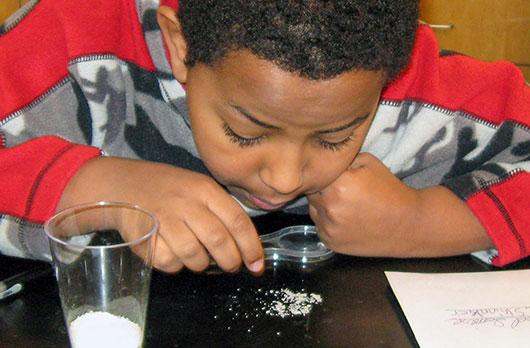
Funder:
U.S. National Science Foundation
Award Number:
DRL-0628245
Clark University Tufts University Education Development Center
Related ServicesShare This Page:

